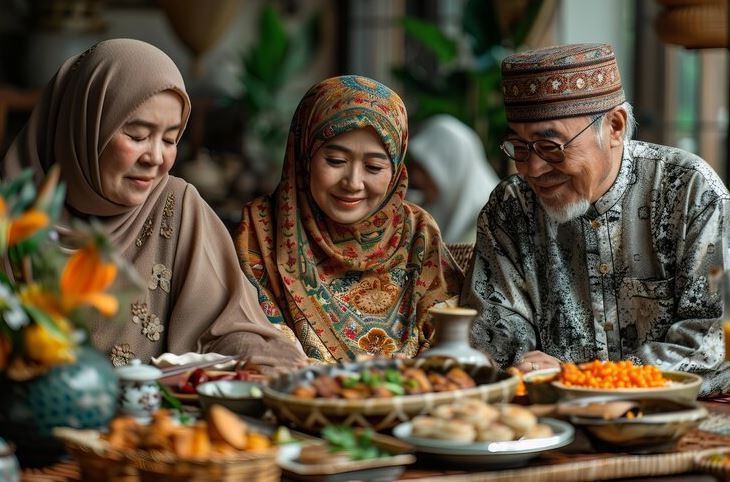How to Photograph Ubud Bali’s Stunning Rice Terraces
Ubud, Bali, is renowned for its lush landscapes, rich culture, and serene atmosphere. Among its most iconic features are the stunning rice... Read More

Ramadan, the ninth month of the Islamic lunar calendar, is a sacred time observed by millions of Muslims worldwide. It’s a month of fasting, prayer, reflection, and community. But how does this spiritual month unfold in a place like Bali — an island world-famous for its Hindu culture, tropical beaches, and vibrant tourism scene? Spending Ramadan in Bali offers a unique blend of religious devotion, cultural harmony, and the island’s laid-back vibe. Whether you’re a Muslim traveler, expat, or simply curious about how Ramadan is celebrated outside traditional Muslim-majority countries, this article will take you on an immersive journey through the essence of Ramadan in Bali.
Ramadan is observed by fasting from dawn until sunset, abstaining from food, drink, and other physical needs during daylight hours. For many, it is also a time to deepen their faith, practice charity, and strengthen family bonds.
Bali, on the other hand, is predominantly Hindu, with about 83% of the population adhering to Balinese Hinduism, while Muslims make up approximately 13% of the island’s population. This religious mosaic creates a fascinating dynamic during Ramadan, as Muslims in Bali celebrate their faith while surrounded by the island’s rich Hindu culture and colorful traditions.
The arrival of Ramadan in Bali is often quietly anticipated by the Muslim community, particularly in towns like Denpasar, Gianyar, and Karangasem, where Muslim neighborhoods are more prominent.
The month begins with a spiritual aura — mosques fill up for the first Tarawih prayers after Isha, and families prepare their homes for fasting days ahead. Even though Bali is not a Muslim-majority island, the Islamic calendar is well recognized, and the local Muslim communities come together to support each other during this special month.
Fasting in Bali presents unique challenges, especially for Muslims who are also involved in the bustling tourism industry or other work sectors where the tropical heat and physical activity can make fasting tough.
Yet, the fasting experience is deeply rewarding. The sound of the Adhan (call to prayer) echoing from mosques at dawn and dusk offers a calming reminder of spiritual devotion. Many Muslims break their fast with traditional Balinese Muslim dishes such as kolak (a sweet dessert made with bananas and coconut milk) and bubur lambuk (savory rice porridge), integrating local flavors with Islamic customs.
The Iftar (breaking of the fast) in Bali is often a communal event. Mosques and Islamic centers host Iftar gatherings where people from all walks of life come together to share food and stories. Some local restaurants also offer special Ramadan menus featuring both Indonesian and Balinese Muslim dishes.
These moments foster a sense of unity and gratitude, especially as Muslim and non-Muslim neighbors alike may participate or show support, exemplifying Bali’s spirit of harmony.
Mosques such as the Agung Mosque of Denpasar or smaller local prayer halls become the focal points for Ramadan activities. Besides the daily prayers and Tarawih, mosques organize Quran recitations, charity drives, and educational programs for children and adults.
These centers provide spiritual nourishment and social support, helping Muslims in Bali to connect with their faith despite being a minority on the island.
One of the most remarkable aspects of Ramadan in Bali is the peaceful coexistence and mutual respect between Muslim and Hindu communities.
Balinese Hindus, known for their welcoming nature and spiritual traditions, often engage with their Muslim neighbors during Ramadan. You might find Hindu families joining Iftar celebrations or exchanging warm wishes for Ramadan, creating a beautiful example of Indonesia’s famed “Bhinneka Tunggal Ika” (Unity in Diversity).
In some parts of Bali, temporary Ramadan markets pop up, selling traditional snacks, drinks, and festive clothes. These markets become lively hubs where local Muslims and tourists can experience the spirit of Ramadan.
The offerings might include es kelapa muda (young coconut ice), dadar gulung (pandan-flavored rolled pancakes), and other regional delicacies. For visitors, it’s a chance to taste the flavors of Ramadan while soaking in the island’s vibrant atmosphere.
For Muslim travelers visiting Bali during Ramadan, there are a few practical considerations:
The end of Ramadan is celebrated with Eid al-Fitr, marking a joyous occasion of gratitude, forgiveness, and renewal. In Bali, Eid is celebrated with traditional prayers, family gatherings, and festive meals.
Muslims dress in their finest attire, visit mosques, and exchange Eid Mubarak greetings. The celebrations also include visiting relatives and neighbors, sharing sweets, and giving to charity.
In Bali, even non-Muslim friends often join in the festive spirit, highlighting the island’s culture of inclusion.
Spending Ramadan in Bali is more than just fasting; it’s an experience of cultural fusion, spiritual growth, and community solidarity. For many, it reinforces the beauty of diversity and the power of faith to bridge differences.
The peaceful coexistence of Balinese Hindu and Muslim communities offers a hopeful example of harmony in a world often divided by religion and culture.
Whether you are a Muslim observing Ramadan, a traveler curious about global Islamic traditions, or someone interested in Bali’s multicultural tapestry, experiencing Ramadan in Bali is truly unique. It invites us to appreciate faith, embrace diversity, and celebrate unity.
Join The Discussion